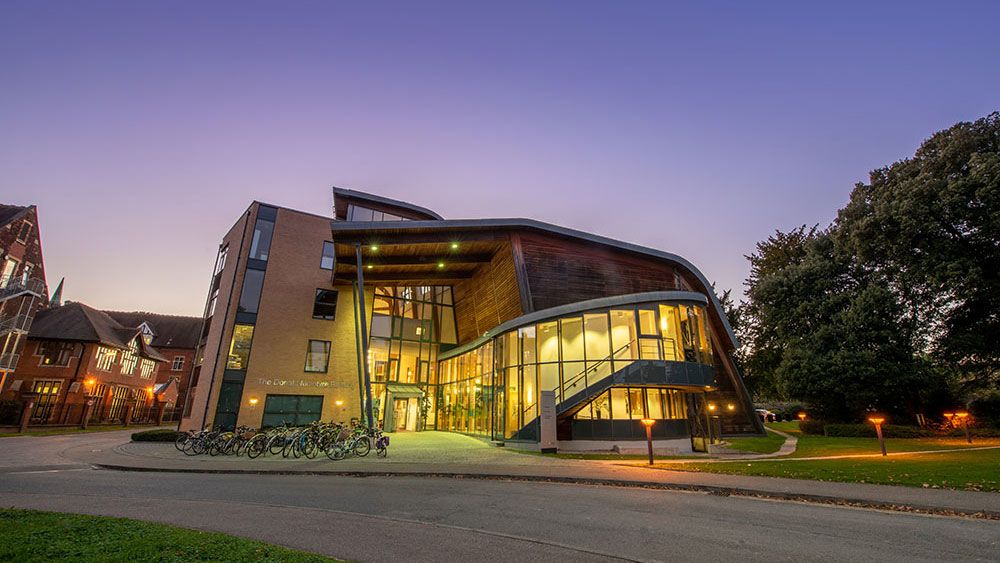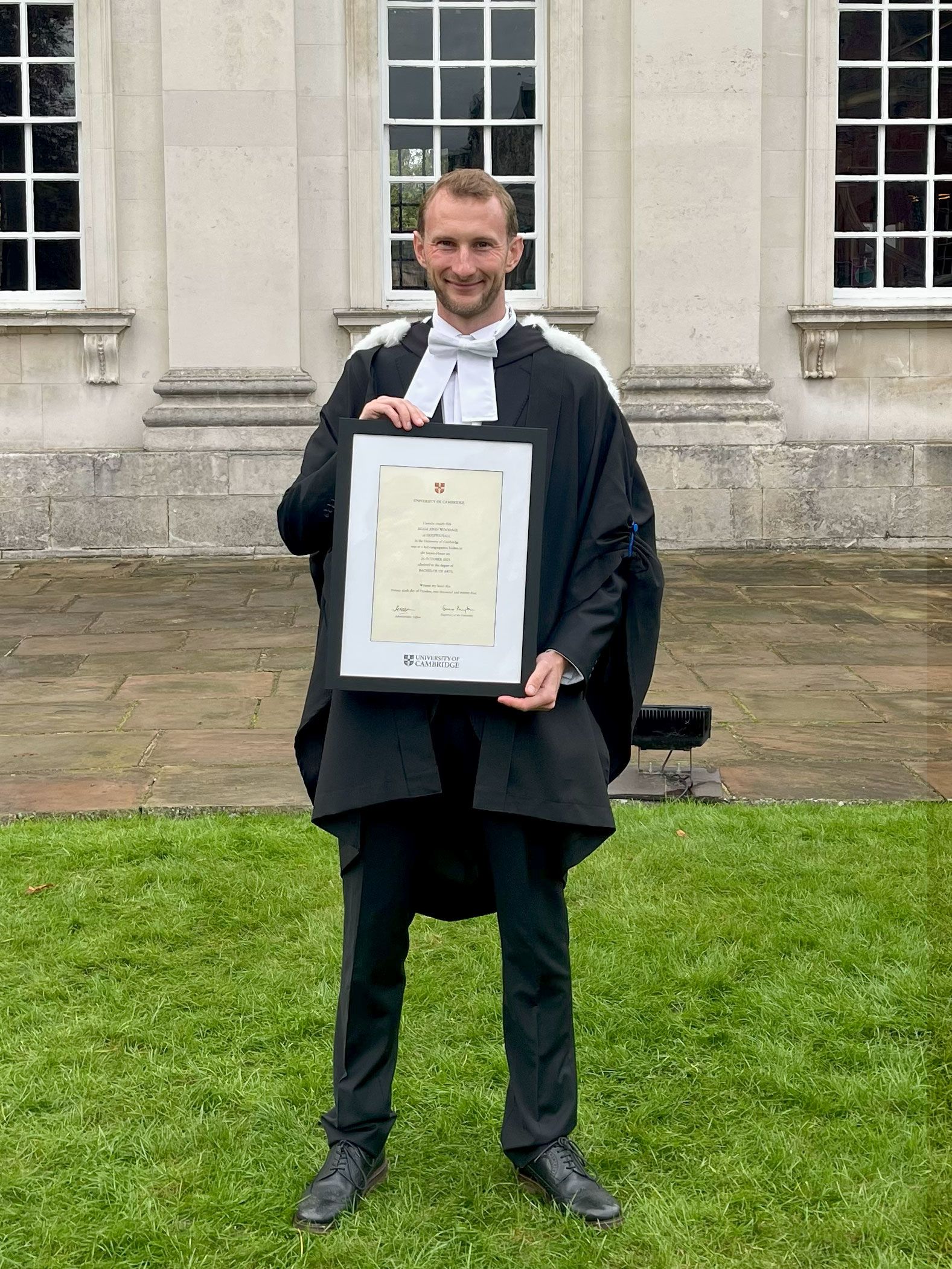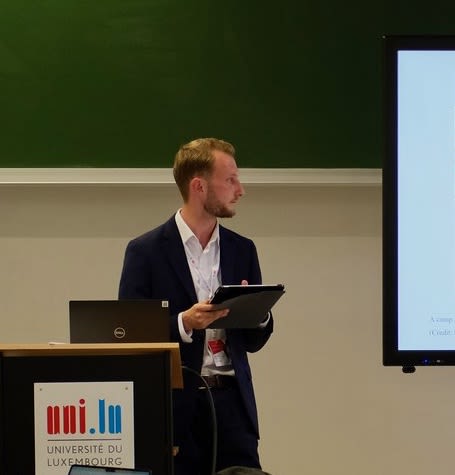What do Education graduates do next?

When I left school at 18, I never imagined that I would go to university.
I come from a family background with very little experience of Higher Education, and so, to my 18-year-old self, I didn’t see university as an inevitable ‘next step’ after school. During my A-Levels, I was quite clear about the direction I expected my career to take, in football, and university didn’t feel essential to that. I worked in the football industry for a few years, as well as in a school, and in a couple of EdTech roles.
Over time, and especially after first living abroad, I found a renewed appreciation for the complexity of our societies, which I was keen to understand better. I started to search for opportunities to think about big issues and ask challenging questions – both about myself, and about the world. I wondered, perhaps, if university might be the right place to do that.
Fortunately, I was still young enough to justify coming away from a career. I looked at a lot of different courses, some undergraduate, some masters, some outside the traditional university system entirely. Between football and EdTech, I had spent a long time thinking about education, but I now wanted to approach it from vantage points and perspectives that the day-to-day busyness of the working world does not always permit.
Adam graduating in 2024
Adam graduating in 2024
In the end, the Education undergraduate course at Cambridge seemed a perfect fit.
The terms would be short and intensive (allowing me to keep working outside of term), and the topics of study broad and varied. I only applied to Cambridge, and I don’t think I’d have gone to university at all if I hadn’t come here.
When on the course, my intention was to study as widely and as deeply as I could. This turned out to be one of the greatest benefits of the Education degree at Cambridge. Over the three years, I think I’ve been supervised or lectured by anthropologists, psychologists, sociologists, philosophers, international development specialists, educationalists, historians, and a whole group of people whose expertise lies at the intersection of these disciplines.
What I focussed on during my studies changed quite regularly. In one day, I might be at a lecture on second language acquisition in English schools, followed by a seminar on access to Higher Education in South Asia, followed by a reading group on social movements in Latin America.
I developed a broad interest in the politics of education, and those spaces and moments where some of the most extreme injustices of our world intersect with education. Most importantly, I always tried to ensure that my studying had a ‘real world’ impact. This often meant being attuned to global developments, as they were happening, or as they related to my professional work outside of term.
The real benefit of the supervision system and the examination structure in Cambridge is that I was able to design a learning and research experience around my interests, and my supervisors’ expertise.
"The Faculty was a place I was happy to spend time, and where there would always be something happening."
One thing that being at Cambridge offered, I think, is an appreciation of universities themselves.
There is something unique about the time and space that universities afford, to ask those questions that may not have ‘easy’ or quantifiable answers, but that are central to how we make sense of the world, and how we decide together what kind of worlds we want in the future. Democratising this space, in the face of global, proliferating threats – including in the UK – is something deeply important to me.
My relationship with supervisors and lecturers defined my overall experience studying Education. I grew so much through the course, both intellectually and personally. Much of that is thanks to their encouragement, enthusiasm, ideas, and openness to share. The faculty, and my college, did an excellent job of recognising when I needed a stretch, when I needed support, and what combination of stretch and support helped me to flourish.
Beyond the immediate teaching environment, I learned a lot from those around me, too. From the academic to the non-academic staff, and all the students who created a welcoming and inclusive environment, the Faculty of Education was a place I was happy to spend time, and where there would always be something happening. It is a very active space, with lots of research groups and a big postgraduate community, which means that there are opportunities to engage with people at all stages of their academic or professional lives.
Adam during a panel presentation at the Consortium of Higher Education Researchers 35th Annual Conference, at the University of Luxembourg.
Adam during a panel presentation at the Consortium of Higher Education Researchers 35th Annual Conference, at the University of Luxembourg.
As we speak, I’m finishing off an MA in Research in Social Anthropology at the University of Birmingham.
Over the course of this year, I have often reflected on how well my undergraduate experience at Cambridge prepared me to undertake independent research. For one of my undergraduate dissertations, I spent my second-year summer doing three months of ethnographic fieldwork, on an estate in Spain which is often marginalised through processes of racialisation and economic exploitation.
My other dissertation involved an analysis of India’s ‘National Education Policy 2020’. Across a variety of other papers, I engaged with all kinds of independent research projects, from walking interviews to workshops, which all prepared me to transition into a research-focused masters this year, in a discipline tangential to my Education degree.
This October, I will start a DPhil in Education at Oxford, funded by the ESRC-Helena Kennedy studentship – something I never thought I’d say five years ago! It will continue my research into the futures of Higher Education in India. Many of the ideas in my research proposal for the DPhil stemmed from my undergraduate study, and the interdisciplinary nature of my proposed research is undoubtedly a product of my time at Cambridge. For the way that studying Education at Cambridge opened doors, not just to new careers, but to new ways of seeing and being in the world, I will be forever grateful.


